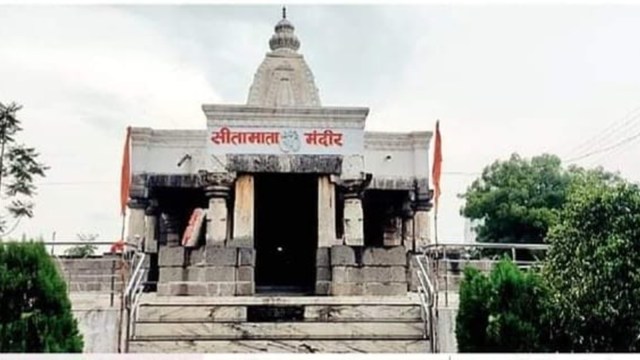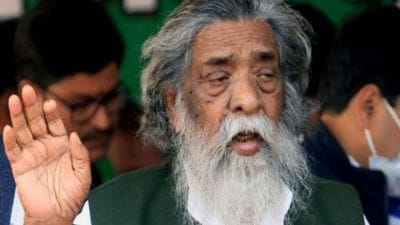Click here to join Express Pune WhatsApp channel and get a curated list of our stories
A Sita temple in Maharashtra that farm leader Sharad Joshi envisaged as springboard for women’s emancipation
As Ram Mandir comes up in Ayodhya, a brief look at how a Sita temple at Raveri was renovated all those years ago.
 The shrine at Raveri, a small village in Ralegaon taluka of the Yavatmal district, is perhaps the only temple in the country dedicated to Sita Mata. (Photo: Special arrangement)
The shrine at Raveri, a small village in Ralegaon taluka of the Yavatmal district, is perhaps the only temple in the country dedicated to Sita Mata. (Photo: Special arrangement)As the country celebrates the Ram Mandir inauguration in Ayodha, a Sita Mata temple in a Maharashtra village stands testimony to a revolution that tried to provide economic liberation to rural women.
The shrine at Raveri, a small village in Ralegaon taluka of the Yavatmal district, is perhaps the only temple in the country dedicated to Sita Mata, the wife of Lord Ram and the incarnation of Goddess Lakshmi as per Hindu mythology. It has idols of Sita and her twin sons, Luv and Kush, but does not feature either Lord Ram or Lakshman. The temple management also runs a small shelter called Maher for single, widowed or abandoned women.
Farmer leader Sharad Joshi was one of the significant figures who played a vital role in renovating the dilapidated temple, as he thought Sita’s story could be a tale of inspiration for many single mothers and abandoned women. As per the Raveri villagers’ belief, after Lord Ram abandoned Sita, she sought refuge in this region, resided in Valmiki’s ashram and brought her children up.
Former MLA and longtime associate of Joshi, Saroj Kashikar said the temple caught the attention of Joshi in the 1990s when the Ram temple movement was at its peak. “Legend has it that Raveri is where Lakshman left pregnant Sita Mata. Joshi started a movement to grant land rights to women under the Lakshmi Mukti Andolan. When he reached the village where Sita was worshipped, he found the temple in a dilapidated condition,” she said.
Joshi was said to have donated Rs 13 lakh on his own during a meeting of Shetkari Sanghatana, the farm union he founded, in Jalna, and raised another Rs 7 lakh for the temple renovation.
“Mata Sita, to Joshi, was the epitome of a single woman raising her children against all odds. Thus, he decided to have an ashram in the temple where single, widowed or abandoned women could find shelter. Joshi planned to make such women self-sufficient and economically strong through training and help,” Kashikar said.
Back in the 1980s and 1990s, when Shetkari Sanghatana was most active, Joshi also started a movement to ensure women have equal rights on the land. “We used to visit villages where villagers included names of women in their land records,” said Wamanrao Chatap, former MP and senior leader of the union.
“Every year, the Sanghatana celebrates Sita Navami – the birthday of Mata Sita — by honouring such women with the Sayamsiddha Sita award,” Chatap added.
While the Sita temple has been decorated to celebrate the ‘pran pratishtha’ of the Ram Mandir in Ayodhya, Kashikar said the dream of Joshi is yet to be realised. “Farmers are still dying by suicide and the condition of the farm sector is almost the same as it was back then,” she said.
“The new generation has their problems – unfortunately, solutions are lacking,” she added.
Click here to join Express Pune WhatsApp channel and get a curated list of our stories












